In an era where technology is pivotal, ensuring that senior citizens have access to computers is crucial. This guide focuses on the easy steps to obtain free computers for senior citizens.
As we advance in the digital age, it becomes more important for seniors to stay connected and informed. However, the financial burden of purchasing a computer can be a significant obstacle for many elderly individuals.
Understanding the avenues and steps to acquire these essential tools without cost is therefore not just beneficial, but necessary for seniors striving to remain engaged in our increasingly digital world.
Read More: Free Beds for Low Income Families
Free Computers for Seniors Low Income

For seniors with limited income, the prospect of accessing modern technology can often seem out of reach. Recognizing this challenge, various programs and initiatives have been established to provide free computers to low-income seniors.
These initiatives are crucial in bridging the digital divide and ensuring that financial constraints do not hinder seniors from reaping the benefits of the digital age. Many of these programs are spearheaded by government entities, non-profit organizations, and even private corporations.
They aim to empower seniors by providing them with the necessary tools to access information, communicate with loved ones, and enjoy the vast resources available online.
For instance, government assistance programs often include provisions for technological aid, providing eligible seniors with free or heavily discounted computers.
Additionally, numerous charitable organizations recognize the importance of digital literacy among the elderly and thus offer free computers to those in need.
These organizations typically source their computers through donations and refurbish them to ensure they are user-friendly and suitable for senior users. Furthermore, local community programs and initiatives frequently play a significant role in this endeavor.
They not only offer free computers but often provide essential training and support to help seniors navigate the complexities of modern technology.
Read More: Blu M8l Tablet Free Government
Government Assistance Programs For Free Computers for Seniors
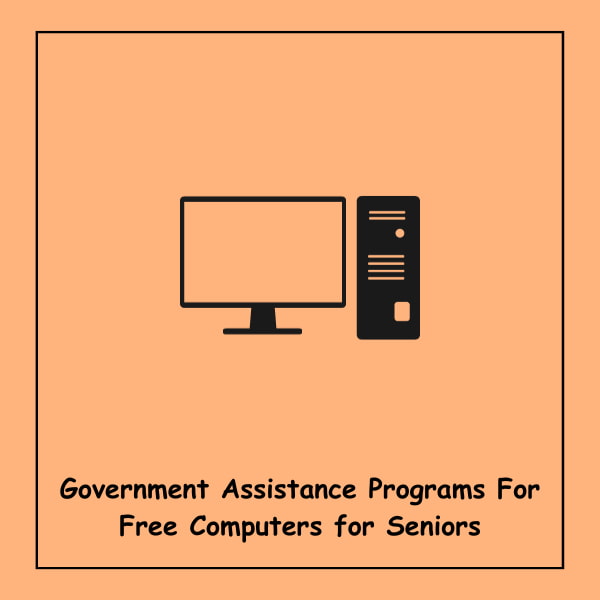
Government assistance programs offering free computers for seniors are vital in promoting digital inclusivity among the elderly. These programs, often a part of larger social welfare initiatives, are designed with the specific goal of enhancing the technological accessibility for seniors, a demographic that can greatly benefit from digital connectivity.
The eligibility criteria for such programs are typically inclusive yet specific. Age is a primary factor, with most programs catering to individuals aged 60 or above. However, some may have a lower age threshold.
The income criteria are another critical aspect, where applicants must demonstrate a need based on their financial situation, usually aligning with or falling below a certain percentage of the federal poverty level.
Residency requirements ensure that these resources are allocated appropriately, requiring applicants to be residents of the state or region offering the program. The application process is a crucial step that involves submitting detailed documentation for verification.
This includes legal proof of age, such as a driver’s license or state-issued identification card, income verification through documents like pension statements, tax returns, or social security documentation, and proof of residency, which could be utility bills, lease agreements, or similar documents.
Once the application is reviewed and approved, seniors receive computers through various distribution channels.
These channels might include direct mailing of the equipment, pick-up options from designated local centers, or even distribution events organized in collaboration with local community organizations.
These programs often extend beyond just providing the hardware; they may include initial setup support, basic digital literacy training, and ongoing technical assistance, ensuring that senior citizens not only receive the technology but are also empowered to use it effectively.
Read More: Ashley Furniture Free Bed Assistance Program
How To Get Free Computers For Senior Citizens
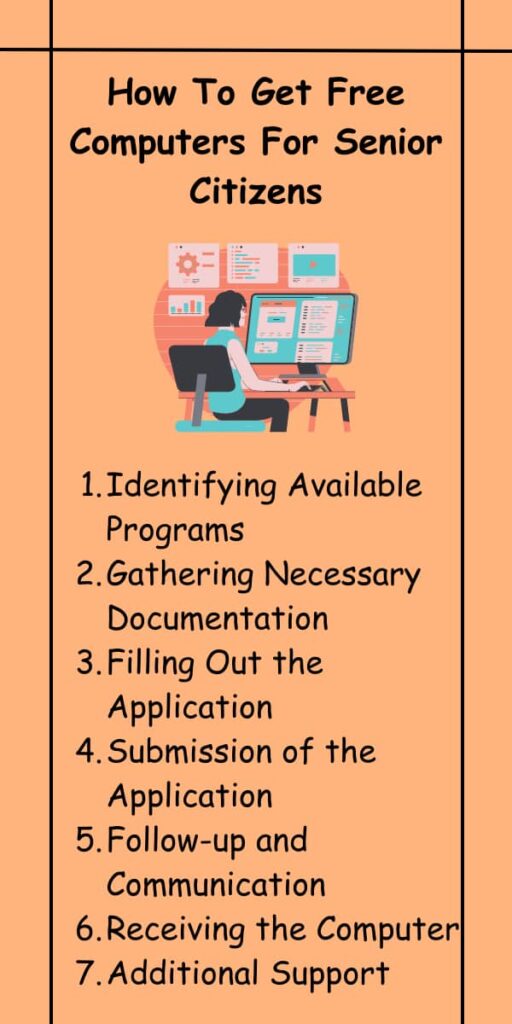
1. Identifying Available Programs:
- Research: Utilize online resources, including government websites and senior advocacy groups, for information.
- Community Resources: Inquire at local senior centers, community centers, libraries, and even churches.
- Media and Bulletins: Stay informed through community bulletins, local newspapers, and even local cable channels that may announce such programs.
2. Gathering Necessary Documentation:
- Comprehensive Documentation: Gather all possible relevant documents in advance, including Social Security documentation, Medicare cards for age proof, and any government assistance documentation.
- Organizing Documents: Keep documents organized and readily available for submission, possibly in digital and physical formats.
- Verification: Ensure all documents are current and valid, as expired or outdated documents may lead to application rejection.
3. Filling Out the Application:
- Attention to Detail: Read all instructions carefully to ensure that every section of the application is completed accurately.
- Clarity and Conciseness: Provide clear and concise answers where explanations are required.
- Double-Check: Review the application for any errors or omissions before submission.
4. Submission of the Application:
- Submission Methods: Follow the specified method for submission strictly, whether it’s online, via mail, or in-person.
- Confirmation of Receipt: Ensure to get a confirmation of receipt where possible, especially for mail and online submissions.
- Timeliness: Submit the application well within any deadlines to avoid disqualification on the basis of late submission.
5. Follow-up and Communication:
- Regular Follow-up: Regularly check on the application status either online or by contacting the program administrators.
- Open Communication: Be ready to promptly respond to any queries or requests for additional information.
- Patience: Understand that these processes can take time and remain patient yet persistent.
6. Receiving the Computer:
- Logistics: Be clear on the logistics of how the computer will be delivered or needs to be picked up.
- Inspection: Upon receipt, inspect the computer for any issues and report them immediately.
- Acknowledgment: Provide any necessary acknowledgment or receipt as per the program’s requirements.
7. Additional Support:
- Training: Enquire about any available training programs to help in getting acquainted with the new technology.
- Technical Support: Ask about ongoing technical support, including troubleshooting and maintenance.
- Resource Utilization: Take advantage of any additional resources offered, such as internet access programs or software tutorials.
Read More: Free Government Grants for Dental Implants
How To Qualify For Free Computers For Senior Citizens
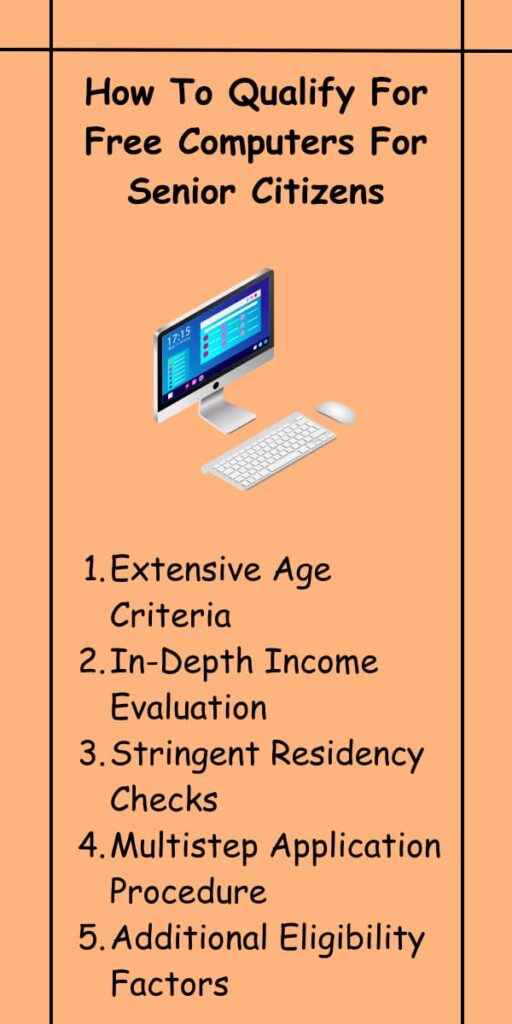
1. Extensive Age Criteria:
While most programs target seniors above 60 or 65, some might extend their services to those in their late 50s.
Valid proof of age includes official documents like a state ID, driver’s license, or a birth certificate.
2. In-Depth Income Evaluation:
Applicants usually need to demonstrate income levels below a certain percentage of the federal poverty line.
Requires detailed financial documentation, including but not limited to, pension disbursements, social security income, and any other relevant income sources.
Programs may assess the overall financial status of the household, not just the individual applicant’s income.
3. Stringent Residency Checks:
Proof of residency within the service area of the program is mandatory.
Acceptable documents might include lease agreements, mortgage statements, utility bills, or official correspondence with a government agency.
4. Multistep Application Procedure:
The application process typically includes filling out an application form, submitting required documents, and possibly participating in an interview or orientation session.
Applicants may need to apply online, via mail, or in-person at designated centers, based on the program’s process.
Some programs might require a recommendation or referral from a social service agency.
5. Additional Eligibility Factors:
Priority may be given to seniors with specific needs such as those with disabilities, veterans, or those with no prior technology access.
Active participation in community services or enrollment in senior educational programs could enhance eligibility.
Read More: How to Get Free Cleaning Supplies
Eligibility For Free Computers For Senior Citizens In 2024
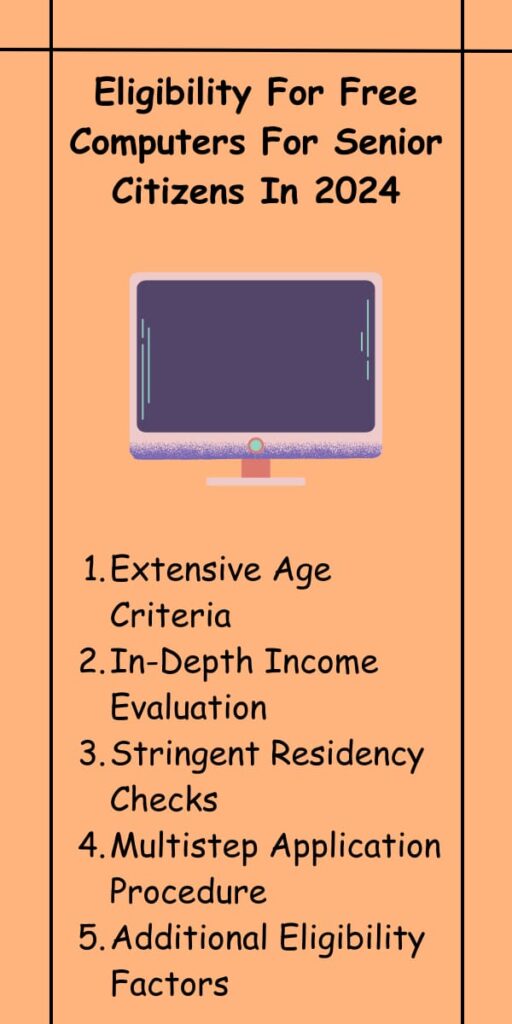
1. Projected Economic Condition Adjustments:
- Eligibility criteria are expected to adapt to the prevailing economic conditions, which may affect income eligibility thresholds.
- These adjustments will likely account for any changes in the cost of living or national poverty guidelines.
2. Dynamic Age Requirements:
- With changing demographics, programs might lower age thresholds to include a wider range of seniors.
- Flexibility in age requirements could also cater to early retirees or those with age-related disabilities.
3. Expansion to Diverse Senior Groups:
- Increasing focus on reaching marginalized or less tech-savvy senior groups.
- Programs might broaden criteria to encompass seniors from rural areas, non-English speakers, or those in caregiver roles.
4. Keeping Pace with Tech Developments:
- Criteria may be updated to reflect the need for more advanced technology, considering rapid digital advancements.
Read More: Free Government Smartwatch
What Kinds Of Free Computers For Senior Citizens Are Available?
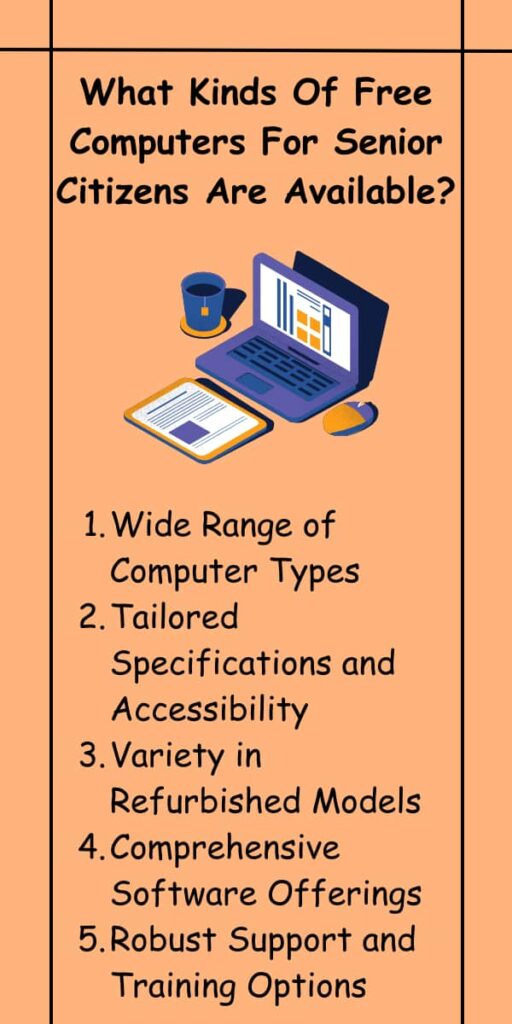
Wide Range of Computer Types:
- Includes various models of desktops, from entry-level to more advanced systems, depending on the program’s capacity.
- Laptops could range from basic models to those with more advanced features like solid-state drives, touchscreens, or high-definition displays.
- Tablets that are senior-friendly, featuring large screens, easy-to-use interfaces, and lightweight designs.
Tailored Specifications and Accessibility:
- Computers with diverse specifications to suit different needs – varying in processor speed, memory, and storage capabilities.
- Enhanced accessibility features like adjustable text sizes, high-contrast display settings, and speech-to-text capabilities.
- User interfaces designed for ease of use, potentially customizable to individual preferences.
Variety in Refurbished Models:
- Refurbished computers ranging from older models upgraded for basic use to more recent, lightly used systems.
- Assurance of functionality with some form of warranty or guarantee for reliability.
Comprehensive Software Offerings:
- Pre-loaded with essential software for communication, internet browsing, basic office tasks, and multimedia.
- Additional programs and apps focusing on health, wellness, and lifelong learning tailored for seniors.
Robust Support and Training Options:
- Extensive training programs covering computer basics, online safety, and use of common software applications.
- Ongoing technical support through help desks, community tech volunteers, or remote assistance services.
Read More: Free Laptop for Veterans
How To Get Free Computers For Senior Citizens, If I’m Not A US Citizen?
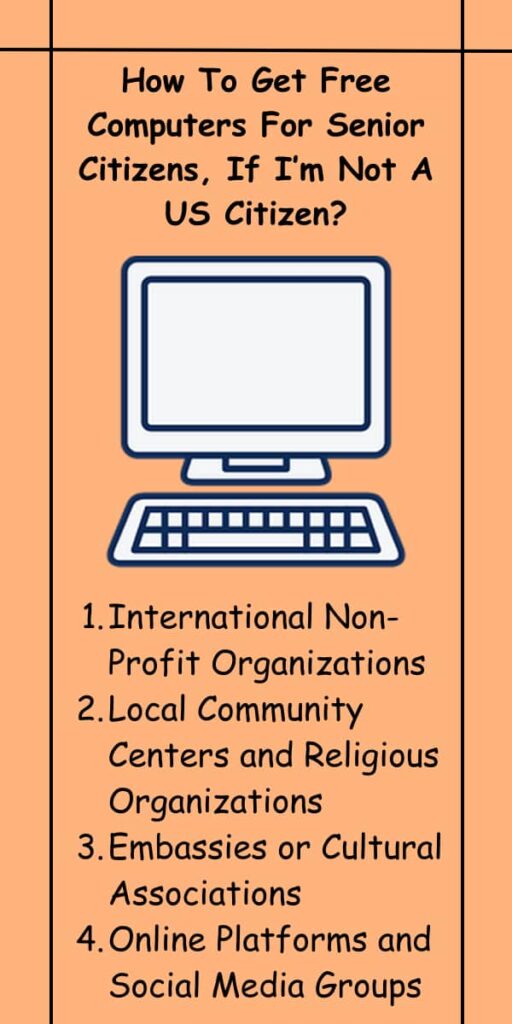
1. International Non-Profit Organizations:
Look for global charities and non-profits that specialize in providing technological support, regardless of citizenship.
These organizations, such as the World Computer Exchange, may have specific programs for seniors or collaborate with other entities to provide technology.
They might also have global outreach programs, offering refurbished computers to senior citizens in various countries.
2. Local Community Centers and Religious Organizations:
Community centers often host a variety of programs, including technology assistance for the elderly, without strict citizenship requirements.
Religious institutions like churches, mosques, or temples might run their own donation drives or be in touch with donors who are willing to provide computers to seniors in need.
These centers might also offer classes or workshops to help seniors learn basic computer skills, enhancing the utility of the donated computers.
3. Embassies or Cultural Associations:
Embassies or consulates of your home country might have programs or resources aimed at assisting their senior citizens living abroad.
Cultural associations representing various international communities often organize events or drives where technology resources are distributed.
They may also offer guidance on navigating local assistance programs and connect seniors with relevant resources.
4. Online Platforms and Social Media Groups:
Websites like Freecycle, Craigslist, or Nextdoor can be platforms where individuals or organizations post about donating used computers.
Social media groups, especially those targeted at community aid or expatriate communities, might have leads on available technology resources.
These platforms can also be used to network with others who might be aware of available resources for non-US citizen seniors.
Read More: Free Mobility Scooter
Where to Find Free Computers for Seniors
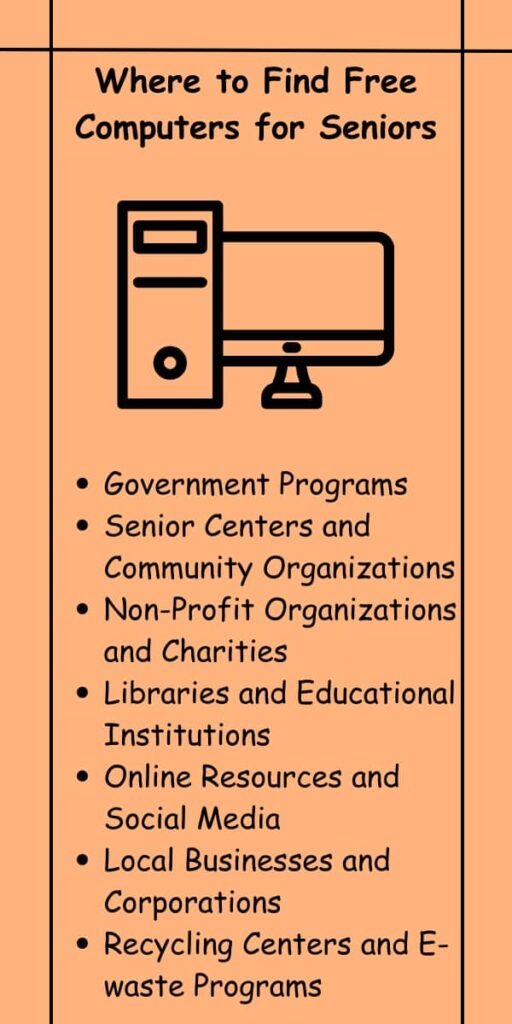
1. Government Programs:
- Local, state, and federal government programs often provide technology resources for senior citizens.
- Departments or agencies focusing on elderly welfare might have specific initiatives to enhance digital literacy and access among seniors.
- Checking official government websites or contacting local government offices can provide information about these programs.
2. Senior Centers and Community Organizations:
- Many senior centers and community organizations have programs or know of initiatives offering free computers to seniors.
- These centers might also have partnerships with tech companies or non-profits for technology donations.
- Community organizations often hold events or workshops where computers are distributed to the elderly.
3. Non-Profit Organizations and Charities:
- Charities such as Goodwill, The Salvation Army, or others focused on digital inclusion often have programs to provide technology to seniors.
- Some non-profits may specifically focus on refurbishing used computers and distributing them to those in need, including senior citizens.
4. Libraries and Educational Institutions:
- Public libraries sometimes have programs offering computers for seniors or can be a resource for information on where to find them.
- Educational institutions, particularly community colleges, might run programs or have partnerships for technology assistance to the elderly.
5. Online Resources and Social Media:
- Online forums, elderly care websites, and community groups on social media platforms can be excellent resources for finding free computers.
- These platforms often share information about local giveaways, donation drives, or programs offering tech assistance.
6. Local Businesses and Corporations:
- Businesses in the community might donate used computers as part of their corporate social responsibility initiatives.
- Larger corporations sometimes have programs to refurbish and donate their old equipment to non-profits or directly to those in need.
7. Recycling Centers and E-waste Programs:
- E-waste recycling centers often refurbish old computers and make them available for free or at a nominal cost.
- They might partner with community organizations or run their own programs to distribute these computers to seniors.
Read More: Free Medicaid Tablet
National Resources and Programs Give away free laptop computers to seniors

Numerous national programs and resources are dedicated to providing free laptop computers to seniors, reflecting a growing recognition of the need for digital inclusivity across age groups.
These programs, often spearheaded by well-established non-profit organizations, technology companies, and sometimes in collaboration with government agencies, aim to ensure that senior citizens across the country have access to the digital tools essential in today’s world.
Programs such as Computers with Causes, SeniorNet, and The On It Foundation stand out for their commitment to this cause. Their eligibility criteria, while varying, usually encompass age and financial need, thereby reaching a broad spectrum of senior citizens.
The application process for these programs is designed to be senior-friendly, often involving straightforward forms and requiring standard documentation for verification.
The goal is to make the process as accessible as possible. Beyond the provision of laptops, these national programs frequently offer supplementary resources, such as online tutorials, digital literacy workshops, and helplines for technical support.
This holistic approach ensures that seniors are not only recipients of technology but also become competent users, able to leverage these tools for communication, entertainment, information, and more.
The impact of such programs is significant, bridging the digital divide and fostering an environment where seniors can remain active, informed, and connected members of society.
Read More: Free Refrigerator Program Cleveland Ohio
Local Options for Free Computers for Seniors
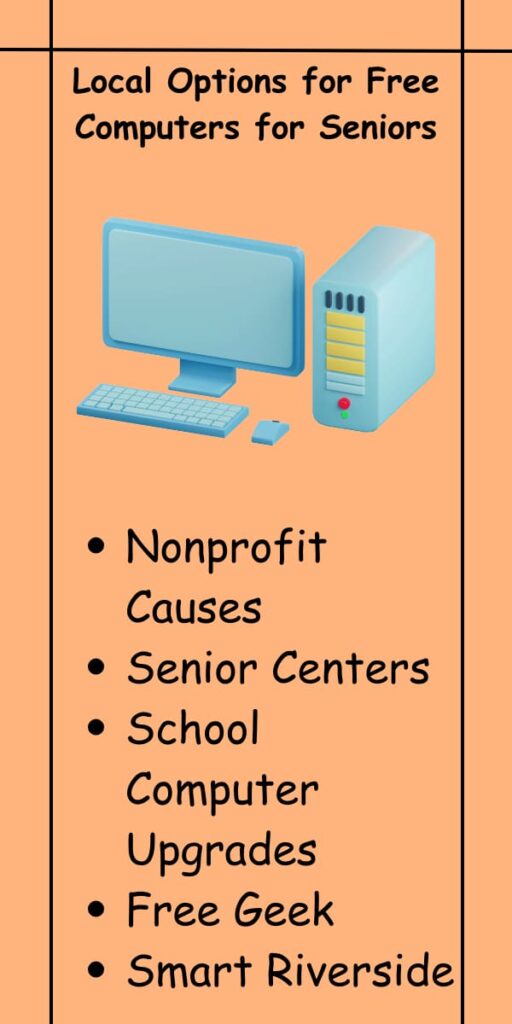
Nonprofit Causes:
Numerous local nonprofits focus on bridging the digital divide for seniors by providing free computers. These organizations often gather used
computers from individual donors or corporate partners, refurbish them, and distribute them to seniors in need.
Seniors can locate these nonprofits through local directories, community bulletin boards, or online platforms dedicated to community services.
Senior Centers:
Community senior centers are pivotal in offering access to free computers. They often run programs or have arrangements with tech donors to provide seniors with necessary computer equipment.
Additionally, these centers sometimes offer computer literacy classes and workshops, helping seniors not only to acquire a computer but also to learn how to use it effectively.
School Computer Upgrades:
When local schools upgrade their computer labs, the replaced equipment is often still functional and suitable for basic use. These schools may donate their old computers to local seniors or community organizations.
Seniors can inquire at nearby educational institutions or school district offices about any available programs for donating used computers.
State and Regional Programs For Free Computers to Seniors
Free Geek:
This program operates in several regions and provides an opportunity for seniors to receive refurbished computers. In exchange for a set number of volunteering hours within the program, seniors can qualify to receive a free computer.
Free Geek not only offers computers but also provides educational resources to enhance digital literacy among seniors.
Smart Riverside:
Specifically in Riverside, California, Smart Riverside is a notable program offering free computers to low-income seniors. To qualify, seniors usually need to complete a computer training course offered by the program, which equips them with basic digital skills.
This program is designed to empower seniors by providing both the technology and the skills necessary to navigate the digital world.
Read More: Free Government Phone
Shared Computers for Seniors
School Computer Upgrades:
In addition to donating old computers, some schools and educational institutions set up computer labs for community use. These shared spaces allow seniors to access computers and the internet.
These facilities are particularly useful for seniors who may not need a personal computer at home but can benefit from occasional access.
Your Local Library:
Public libraries are a valuable resource for seniors seeking computer access. Most libraries offer computer stations with internet access, often with no cost involved.
Libraries also typically provide assistance from staff for seniors unfamiliar with computers, from basic operations to more complex tasks like online searches or email setups.
Read More: Free Roofing for Seniors
Discounted Computers For Seniors

Discounted computers provide an affordable option for seniors who need access to technology. Various retailers and computer refurbishing programs offer special discounts for the elderly:
- Many technology stores have special offers for senior citizens, including discounts on new computers or accessories.
- Refurbished computer programs take used computers, update and repair them if necessary, and then offer them at significantly reduced prices.
- These programs often have partnerships with senior organizations and community centers to reach elderly clients.
- Online platforms like eBay or Amazon sometimes have refurbished sections where high-quality computers are available for lower prices.
- Additionally, some computer brands or stores offer seasonal sales or clearance events where seniors can purchase computers at a more affordable rate.
Read More: I Want Free Laptop from Google
Free or Cheap Computers for Pensioners
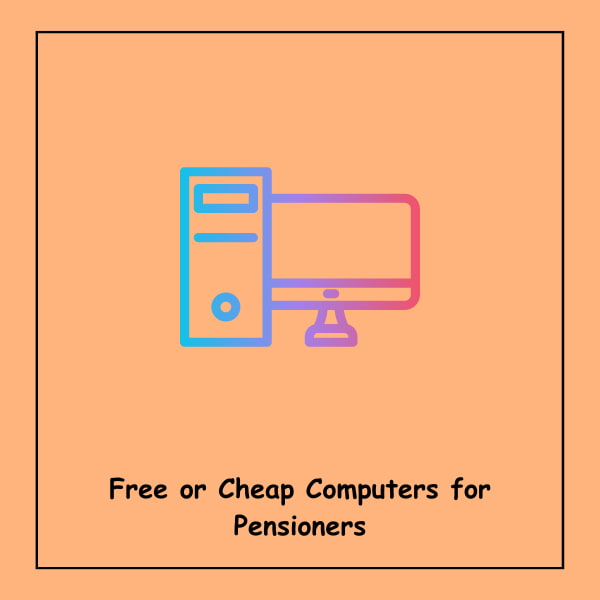
Pensioners looking for free or inexpensive computers have several options to explore. Numerous programs and organizations specifically target retirees and pensioners, offering them free or discounted computers.
These include government-sponsored initiatives, where pensioners can apply based on their income level and age.
Charitable organizations and non-profits often have specific programs for pensioners, providing refurbished computers at little or no cost.
Additionally, some tech companies and retail stores offer discounts to pensioners, making new computers more affordable.
Pensioners can also benefit from community drives or donation programs run by local schools and colleges, where slightly outdated but fully functional computers are given away.
These avenues not only make technology accessible but also support pensioners in staying connected and engaged in the digital world.
Read More: Car Vouchers for Single Mothers
Free Computer for Senior Scams
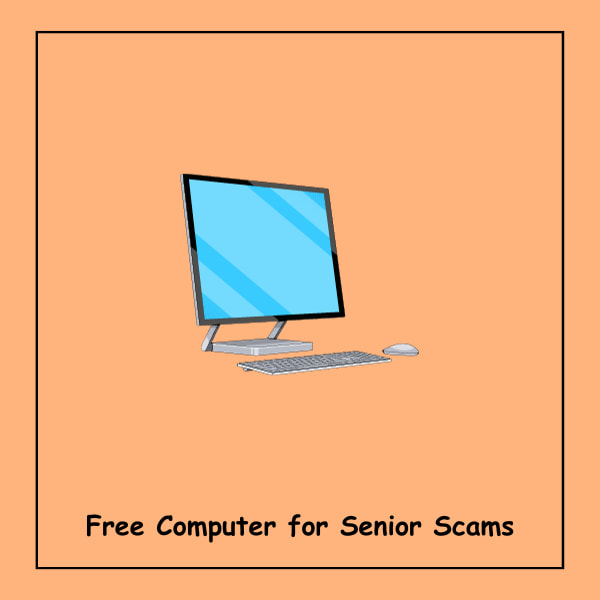
Unfortunately, the initiative to provide free computers to seniors is sometimes exploited by scammers.
These scams often target seniors, capitalizing on their lack of familiarity with technology and digital processes.
Common scams include phishing emails or websites that mimic legitimate offers, asking seniors to provide personal information or make a payment to receive a free computer.
Some fraudsters might pose as representatives of fake charities or government programs offering technology assistance.
Seniors should be cautious and verify the legitimacy of any offer they receive.
It’s advisable to consult with trusted sources, check with known organizations, or look for reviews and credentials before responding to such offers. Awareness and caution are key in avoiding these scams.
Read More: T-Mobile Free Tablet EBT
Free Computers for Low Income

For individuals and families with low income, free computer programs are a valuable resource. These programs are typically offered by government agencies, non-profits, and community organizations.
They aim to bridge the digital divide by ensuring that financial constraints do not hinder access to technology.
Eligibility for these programs often depends on income level, usually benchmarked against the federal poverty line.
In addition to national and regional programs, local community groups and charities frequently conduct computer donation drives.
Some programs also include training sessions to help recipients effectively use their computers. These initiatives play a crucial role in promoting digital literacy and ensuring equitable access to technology for all income levels.
Read More: Safelink Free Tablet
Conclusion
In conclusion, the availability of free or affordable computers for seniors, pensioners, and low-income individuals represents a significant step towards digital inclusivity.
Various programs and initiatives, supported by governments, non-profits, and private organizations, offer opportunities for these groups to access technology.
However, it’s important to remain vigilant against scams targeting seniors. Navigating these resources requires awareness and careful verification to ensure legitimacy.
Ultimately, these programs not only provide essential technology but also foster greater connectivity, engagement, and empowerment in today’s digitally driven world.
Most Searching Posts:
- Free Government Iphone 8
- Free Gas Cards for Homeless
- Pell Grant for Yoga Teacher Training
- Federal Clothing Assistance Programs
- Free Tummy Tuck by Trainee Surgeons
- Free Cell Phone No Deposit No Activation Fee
- Emergency Housing for Single Fathers
- How to Get Free Broken Computers & Old Computers?
- Free Financial Assistance for Seniors & Elderly
- Government Free Laptop for a Low-Income Family [ 32 Updated Programs- Get It Now ]
- Free Money For Seniors From Government – Hardship Grants for Seniors
- Free Stuff for Senior Citizens from Government
Frequently Asked Questions (FAQ):
How Can Senior Citizens Obtain Free Computers?
Seniors can explore various avenues such as government assistance programs, non-profit organizations, community programs, and local initiatives that provide free computers to those in need.
What Eligibility Criteria Do These Programs Typically Have?
Eligibility often depends on factors such as age, income level, residency, and sometimes specific needs such as disabilities or active community involvement.
What Documentation Is Required to Apply for Free Computers for Seniors?
Required documentation usually includes proof of age, income verification, and proof of residency.
What Steps Are Involved in the Application Process for Obtaining Free Computers?
The process generally includes researching available programs, gathering necessary documents, filling out the application accurately, submitting it through specified channels, and following up on the application status.
What Types of Computers Are Available for Seniors Through These Programs?
A wide range of computers, including desktops, laptops, and tablets, with tailored specifications and enhanced accessibility features.
How Can Non-Us Citizens Access Free Computers for Seniors?
Non-US citizens can explore options through international non-profit organizations, local community centers, embassies or cultural associations, and online platforms or social media groups.
Where Can Seniors Find Free Computers Apart from Government Programs?
They can explore options through senior centers, nonprofit causes, school computer upgrades, state and regional programs, shared computers, local libraries, local businesses, recycling centers, and national resources or programs.
Are There Discounted Computers Available for Seniors?
Yes, seniors can find discounted computers at various retailers, through refurbished computer programs, online platforms, and during seasonal sales or clearance events.
How Can Pensioners Access Free or Cheap Computers?
Pensioners have access to government-sponsored initiatives, charitable organizations, tech company discounts, community drives, and local donation programs aimed specifically at retirees and pensioners.
What Precautions Should Seniors Take to Avoid Scams Offering Free Computers?
Seniors should be cautious of phishing emails, fake websites, or fraudulent offers that request personal information or payments. They should verify the legitimacy of offers with trusted sources before responding.
Leave a Reply